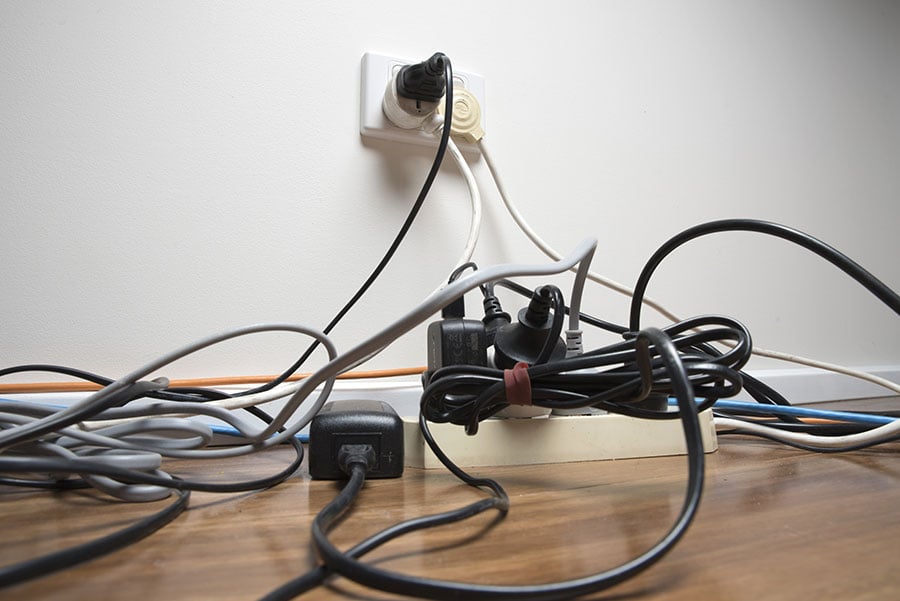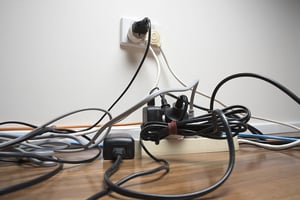
Carrying out electrical work in your own home or workplace can be incredibly tempting. Perhaps you are a ‘handy’ person and believe you have the necessary skills to carry out the work. You may think: ‘How hard can it be?’ and want to avoid paying for the services of a professional electrician.
However, in every instance, a certified and professional electrician should be sought to complete all electrical services work. It is simply too dangerous not to use a skilled and qualified electrician.
Unfortunately, a number of commonly made mistakes are made as people try to do their own electrical work despite being unfamiliar and inexperienced in working with electricity. These mistakes include:
Use of wires and cables that are the incorrect size: A variety of sizes of electric wire are available (referred to as its ‘gauge’) and the size of the wire determines how and where it should be used. If an incorrect sized wire for the electric current is selected and installed, this may result in overheating or a shorting of the fuse or circuit breaker. It is imperative that only the wire and devices that are rated for the proper amperage are used.
Incorrect fitting of outlets and switches: If outlets and switches are loosely installed, a hazard is presented when appliances are plugged in. Arcing and overheating may be the outcome of wires coming loose from their terminals.
Faults in electrical box connections: The purpose of the electrical box is to provide protection from external elements. In light of this, it is dangerous to attempt to make electrical connections outside of the electrical box and similarly, electrical boxes should not be added to or filled beyond their capacity; this can cause overheating or short-circuiting.
Replacement of fuses: One of the most common causes of fires in the home is that fuses that have blown or tripped are replaced with larger sized fuses or breakers. The reason for the fuse blowing or the breaker tripping is often the result of a fault in the circuit wiring. For this reason, the complete system should be looked at and checked by a professional electrician.
Fuse connections: All connections within a fuse box should be tight and correctly placed whenever they are replaced. If connections are too loose, appliances and lights may flicker or even cut short. The most grave situation is that circuits may overheat. It is important precaution is to make sure that breakers are turned off before any inspection begins.
Wattage of light bulbs: If a light bulb is used that has a greater wattage than is intended for the socket, the risk of overheating the bulb becomes a significant possibility. Alarmingly, there is also a chance that the bulb may break or catch alight.
Outlets being overloaded: It is quite easy to make the electrical mistake of overloading an outlet or powerboard. This can seem confusing as most of us would logically assume that powerboards can handle appliances being plugged in to all outlets available. However, this is dependent on the number of amps a circuit is designed to manage. Particularly if bigger appliances such as refrigerators, dishwashers and air conditioners overload a circuit, problems can be realised.
In order to ensure the safety and effectiveness of the electrical work around your home or office, it is important to use the services and expertise of a professional electrician. Electricity is simply far too dangerous and potentially harmful to risk doing DIY jobs.


